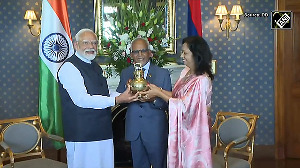A day after a full court meeting and to allay the concerns of lawyers and litigants on matters not being taken up for hearing due to paucity of time, the Supreme Court on Wednesday came out with a new mechanism in which a miscellaneous case "not taken up" for hearing will be listed the next day.

A circular issued by the Supreme Court said, "It is hereby notified for information of the members of the bar, party-in persons' and all concerned that the competent authority has been pleased to direct that henceforth, 'Not Taken Up' miscellaneous matters of Tuesday will be listed next day on Wednesday and those of Wednesday will be listed next day on Thursday.”
It said that similarly, 'Not Taken Up' miscellaneous matters of Thursday will be listed on Tuesday in the following week, subject to orders that may be passed by the concerned bench.
According to sources, a full-court meeting headed by Chief Justice of India UU Lalit was held on Tuesday on various issues including reduction of backlog of pending cases and the new case listing system.
Lawyers have been expressing concern that their listed matters are not being heard by the respective benches under the new case listing system introduced by the top court since August 29 after Chief Justice of India UU Lalit assumed charge.
Under the new mechanism introduced from August 29, the judges of the top court are working in two different shifts.
The new system stipulates that on Monday and Friday of every week, 30 judges are to sit in a combination of two and deal with over 60 miscellaneous matters of each bench, including the fresh PILs.
The new mechanism also stipulates that on Tuesday, Wednesday and Thursday, the judges will sit in a combination of three judges and would first (in morning session) take detailed hearing matters which are generally old cases pending for years till 1 pm.
In the post-lunch session (afternoon session), the judges will sit in a combination of two-judges and would start taking first the matters related to transfer petitions (related to transfer of cases from one jurisdiction to other) and then fresh matters, including PILs followed by 30 to 20 cases, which are after notice matters till 4 pm.
On September 13, a Supreme Court bench, in a rare instance, expressed displeasure in its judicial order over the new case listing mechanism introduced by Chief Justice U U Lalit for speedy disposal of matters pending for years.
A bench headed by Sanjay Kishan Kaul, the number three-judge in seniority at present in the apex court, while hearing a criminal case passed the order, "The new listing system is not giving adequate time to take up matters fixed for hearing like the present case as there are number of matters within the span of ‘Afternoon' session."
The bench had listed the matter for hearing on November 15.
On September 15, the CJI, however, speaking at a function had denied the media reports claiming that a Supreme Court bench has criticised the new system of listing of cases.
The CJI had termed as ”not correct” the media reports and said that all judges of the apex court are on the same page.
Earlier this month, a bench headed by Justice D Y Chandrachud, who is next in line to become the Chief Justice of India, had said that it has been decided that there will be one consolidated list of after notice matters, which will run through the whole week for a bench.











 © 2025
© 2025